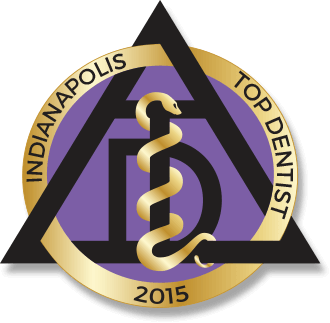
You probably already know that you inherit features like the color of your eyes and your predisposition to certain health issues, but did you know that your genetics influence your oral health as well? This means that despite your best habits, you may naturally be more likely to develop certain dental problems. It’s important to know what dental issues run in your family so you take the right steps to keep your smile healthy. Here are five oral health conditions you may be at a higher risk of because of your unique genetic makeup.
1.) Periodontal (Gum) Disease
Well over half of the US population has some degree of a bacterial infection in the gums known as periodontal disease. However, experts believe that nearly 30% of the population may be genetically predisposed to this common oral health condition. Gum disease typically develops when plaque and oral bacteria accumulate near the gums, so if your family has a particularly destructive type of natural oral bacteria, you may be at a higher risk of this infection. Be sure to tell your dentist if others in your family have struggled with gum disease.
2.) Tooth Decay and Cavities
Does it seem like you get more cavities than you should? Even if you practice great oral hygiene, you may suffer from more tooth decay than others with lacking dental care because of your genetics. Researchers have linked certain variations of the gene beta-defensin 1 to a greater risk of cavities. If you’re at a higher risk of tooth decay, your dentist can help protect your smile with fluoride treatments, dental sealants, more frequent cleanings, or prescription toothpastes or mouthwashes.
3.) Oral Cancer
The top risk factors of oral cancer are poor lifestyle choices like tobacco or alcohol use. However, studies are finding that genetics can also play a minor role in your risk of this type of cancer. Specific genetic markers appear to be associated with higher chances of developing oral cancer. The best way to combat this and keep your mouth healthy is to avoid tobacco and alcohol, eat a balanced diet, and visit your dentist every six months for regular checkups.
4.) Misaligned Teeth
If other people need braces in your family, there’s a good chance that you will as well. Your genetics play a key role in the size and shape of your jaw, which in turn can influence the spacing and positioning of your teeth. If crooked or misaligned teeth run in your family, take your child to see an orthodontist right away. In some cases, preemptive orthodontic treatment can help prevent serious issues later.
5.) Cleft Lip or Cleft Palate
Cleft lip or palate is a common birth defect that occurs when the sides of the lip and the roof of the mouth don’t fuse together properly. Genetics seem to influence the likelihood of this issue, and it tends to be more present in babies of Asian, Latino, and Native American descent. Thankfully, there are a variety of treatments and options for correcting this issue and achieving optimal oral health.
Just as no two smiles are exactly the same, your oral health is completely unique thanks to your genetics. Talk to your dentist about oral health issues that your family has experienced so they can help you spot and stop any problems as early as possible.
About the Practice
At Indianapolis Family Dentistry, Dr. Mark Farthing and Dr. Armin Tepner are proud to offer comprehensive, comfortable, and personalized dental care for the whole family. With the latest dental technology and a wide variety of services, they can help you and your loved ones overcome nearly any issue to achieve and maintain optimal oral health. What’s more, as a family dentist, they have the unique advantage of being able to spot hereditary issues that may otherwise go unnoticed. To learn more about genetic oral health issues, feel free to contact them via their website or at (317) 898-3384.


